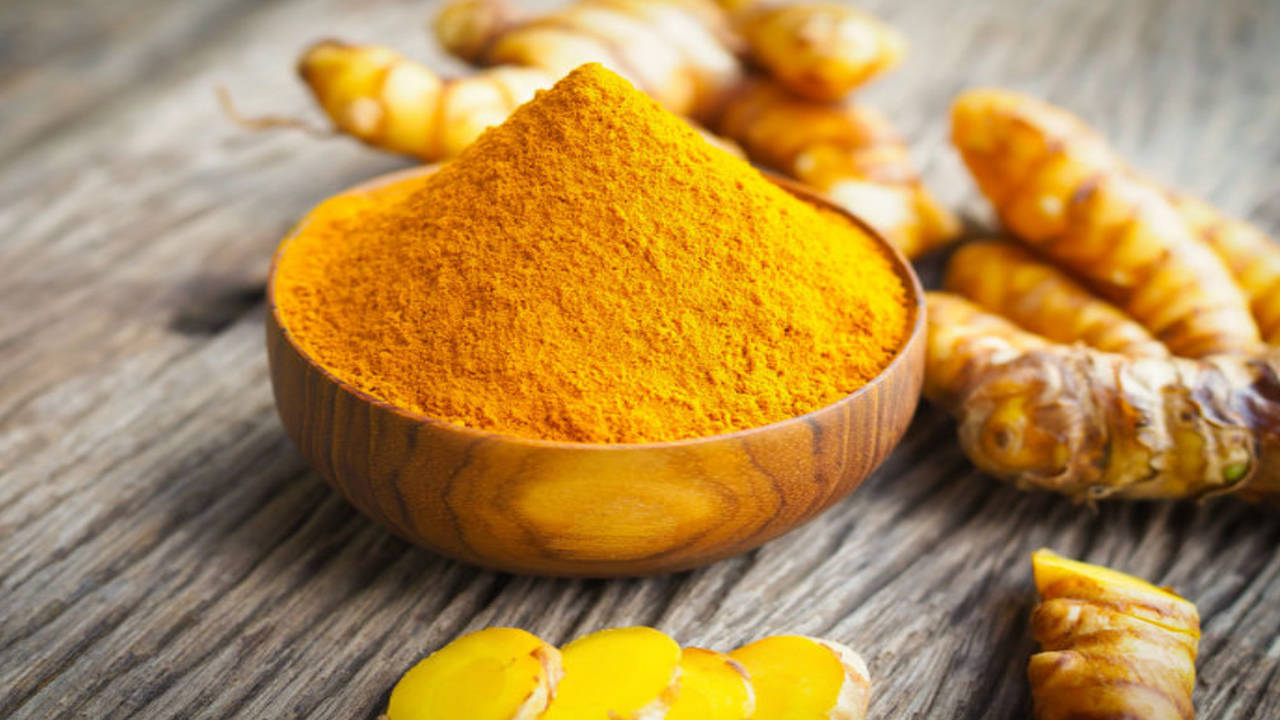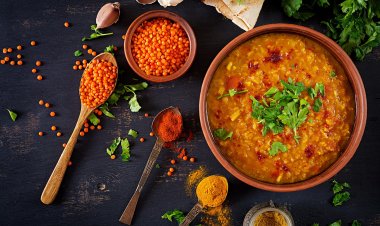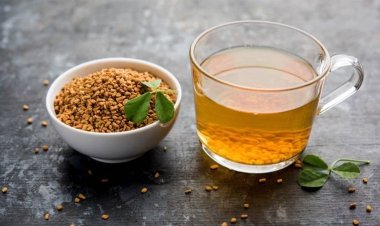World Liver Day Foods Recommended By Ayurveda For A Healthy Liver
On World Liver Day, embrace Ayurvedic wisdom for a healthy liver with recommended foods. Nourish your liver and support your overall well-being with natural choices.
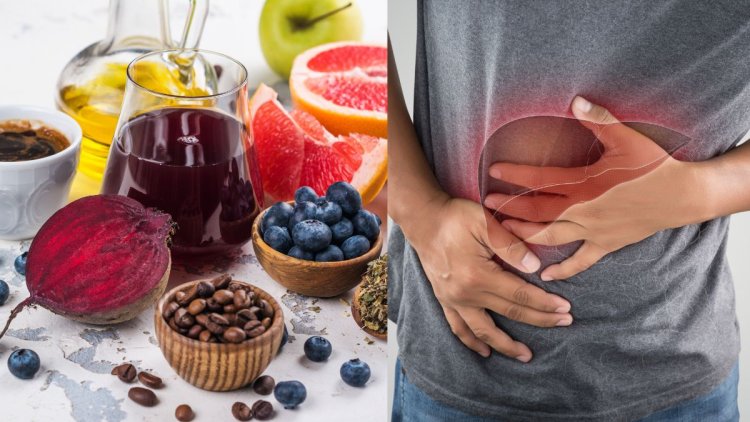
Every year on April 19th, the United Nations recognizes World Liver Day as an opportunity to raise awareness about the vital role that the liver plays in our bodies and the ways in which liver illnesses can be effectively treated or managed. It is of the utmost significance that we take care of our liver because of the critical role that it plays in determining the overall health of our body. It is absolutely necessary to do liver detoxification on a regular basis in order to keep it healthy and in fighting shape. The accumulation of toxins in the liver might result in heightened sensitivity to allergens, problems with cholesterol levels, digestive troubles, or weariness. Maintaining a healthy liver requires a combination of factors, including a nutritious diet, an active lifestyle, and sufficient amounts of physical movement. Recommendations and practices from Ayurveda can assist in maintaining our liver's health, protecting it from damage or illness, and speeding up recovery after illness.
The liver is the body's central processing unit, yet we don't pay nearly enough attention to ensuring that it stays healthy. The digestion, metabolization, and production of vital substances are all critical roles that are performed by our liver. In addition to these, the liver is responsible for the following tasks:Maintaining the integrity of the blood.
It is the job of our liver to transform clean plasma into blood and to maintain the integrity of the blood by searching for and locating poisons in plasma. After that, it stops poisons from getting into the bloodstream. If our liver is unable to do this function, the condition of our blood and skin will deteriorate. This causes the skin to become irritated, dry, and prone to breakouts of acne. Fatty acid digestion is made possible by the liver's production of bile, which facilitates the process by which fatty acids are broken down.Creates protective components that prevent blood clots from obstructing the circulatory system while at the same time producing blood-clotting factors.
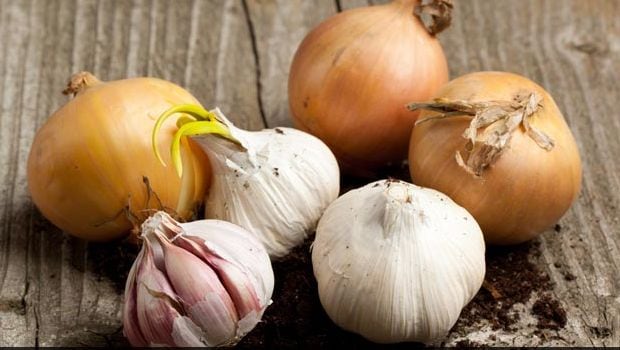
The liver is responsible for both the production of blood-clotting factors and the creation of protective elements.Changes sugar into glycogen - the liver is in charge of changing sugar into glycogen and storing it so that muscles can utilise glucose as a source of energy.Iron, copper, and vitamins A, D, and B12 are all stored in the liver, making it one of the most important organs in the body from a nutritional perspective. The liver also stores other critical minerals.For a healthier liver, Ayurveda suggests maintaining a healthy lifestyle and consuming a balanced diet that includes a variety of foods, such as fruits, vegetables, dairy products, grains, proteins, and fats. This advice is based on the age-old adage that "prevention is better than cure.
According to Ayurveda, the following are some of the foods that can assist in the natural detoxification of your liver and are readily available

1. Garlic
The liver is assisted in the activation of enzymes that are responsible for the elimination of toxins when garlic is consumed. Additionally, it contains significant levels of the antioxidant, antibacterial, and antifungal compound known as allicin, as well as the mineral selenium, which helps boost the effectiveness of antioxidants. Both of them help the liver to cleanse itself.
2. Carrot
Carrots have a very high concentration of plant flavonoids and beta-carotene, both of which are essential to and supportive of the general activities of the liver. Carrots' vitamin A content makes them beneficial for preventing liver damage. You may incorporate carrots into your diet in a variety of ways, such as through salads, juice, soups, or curries.
3. Apple
Apples have pectin, which is a substance that helps flush toxins out of the digestive system and cleanse the body overall. Our liver is better able to handle the toxic load when there are fewer toxins to process. You should try to consume at least one apple every day.
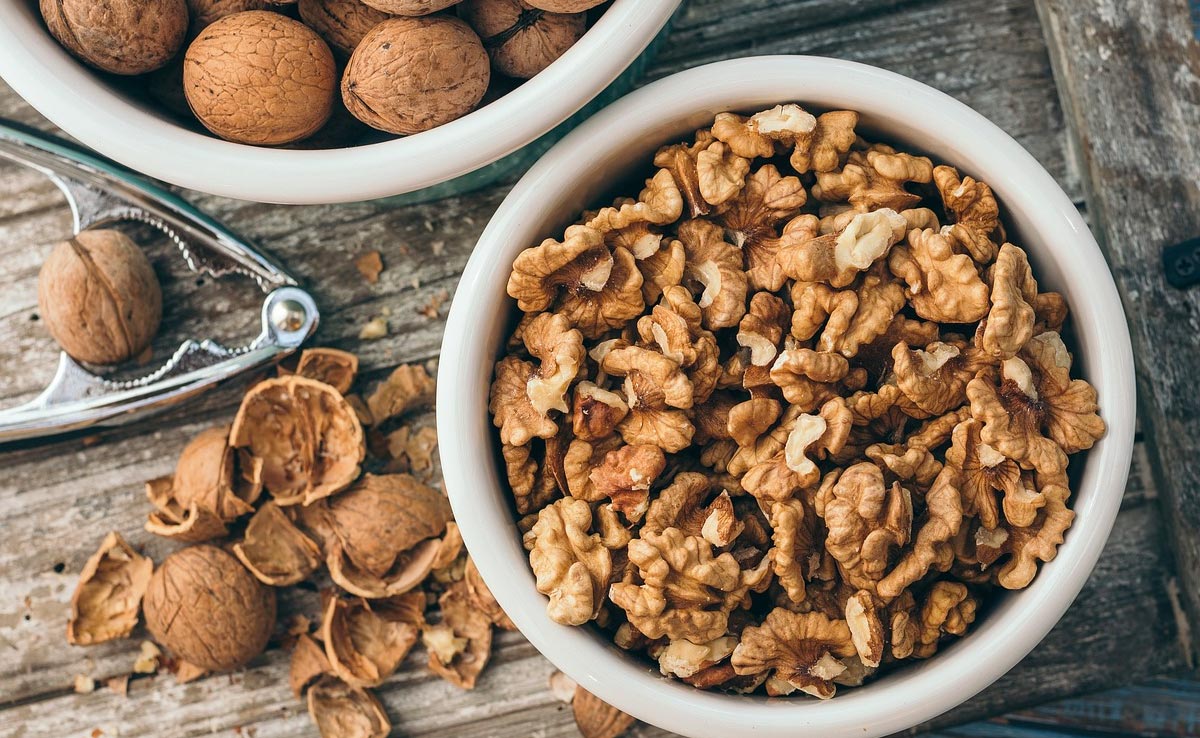)
4. Walnuts
(or Walnuts) Walnuts are a fantastic source of amino acids, and eating them on a daily basis has been shown to help detoxify the liver. According to the findings of one study, individuals with non-alcoholic fatty liver disease who consumed walnuts saw improvements in their liver function tests. But you should be careful to limit your daily intake of walnuts to no more than a handful at a time.
5. Green Tea
Green tea is currently one of the most fashionable beverages in the entire world. Green tea's plant-based antioxidants are responsible for the health benefits associated with drinking it. According to a study published in the World Journal of Gastroenterology, drinking green tea helps lower the amount of fat that is carried by the blood and the percentage of fat that is carried by the body.
6. Vegetables with leafy greens
Green leafy vegetables have a high chlorophyll content, which helps them remove toxins from the blood stream. They are able to reduce the toxic effects of heavy metals on the liver. You should incorporate more leafy green vegetables into your diet, such as spinach, green peas, okra, kale, broccoli, cauliflower, lettuce, and others.
7. Citrus fruits
Fruits of the citrus tree Citrus fruits including oranges, lemons, limes, and others strengthen the liver's capacity for detoxification. The liver's health and its ability to perform its functions are both enhanced by the detoxifying enzymes that are found in citrus fruits. You can squeeze the juice out of them, add them to a fruit salad, or just eat them as they are; whatever you do, make sure you incorporate citrus fruits of all kinds into your diet.
8. Turmeric
TricornutumThe use of turmeric, a wonderful spice, can cut down on the amount of free radical damage that occurs in our liver. The generation of bile juice, which functions as a natural detoxifier for our liver, is aided by turmeric, which also facilitates the metabolism of lipids.
9. Beetroot
Beta vulgaris Beetroot is an excellent source of vitamin C, and similar to citrus fruits, it promotes the production of bile and increases the activity of enzymes. The most nutritious and delicious method to consume beetroot is to either grate it and add it to a salad, or to juice it and include it in a vegetable soup or vegetable juice.


